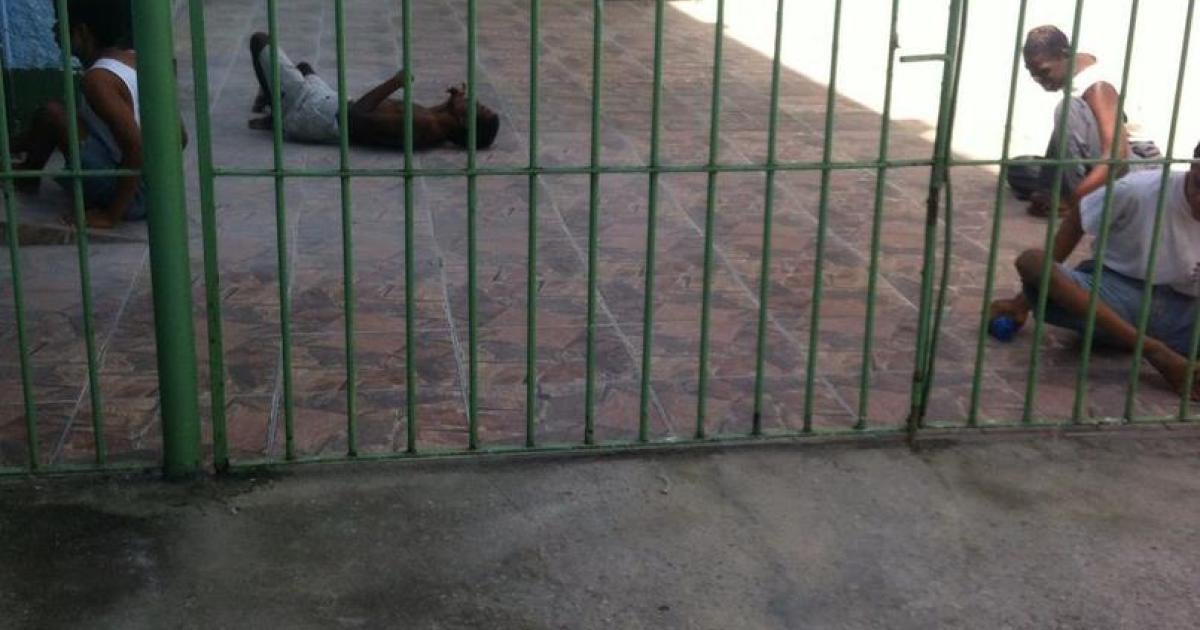Brazil’s federal government has announced a new human rights plan to target the country’s estimated 18 million people with disabilities, but the new “Life Without Restrictions” plan does not include the thousands of people with disabilities who live in institutions.
Aware that the plan was imminent, Human Rights Watch researchers met in early September with officials from the National Secretariat for Persons with Disabilities and the presidential palace, hoping they would address our findings about the neglect of people with disabilities living in Brazilian institutions.
Human Rights Watch visited various institutions for people with disabilities in the states of São Paulo, Rio de Janeiro, and Bahia, and the Federal District between 2016 and 2018. We found that thousands of people with disabilities live in institutions, many of whom have been there since childhood, and that their fundamental rights are severely violated: they face isolation, denial of education, limited decision-making power, physical (and often chemical) restraints, and general impoverishment.
The original plan, “Life Without Restrictions,” published in 2011, sought to create inclusive homes for people with disabilities to live in the community, a step Human Rights Watch said in a 2018 report as a positive comparison with large facilities housing hundreds of people.
But these inclusive residences suffer from many of the problems of larger facilities, including residents’ lack of control over their own lives and daily decisions.
Most disabled people living in inclusive housing are in the care of guardians, have limited legal capacity, and their daily lives are entirely regulated by facility staff.
Many aren’t allowed to make simple everyday choices that most of us take for granted: what time to get out of bed, what activities to participate in, who to socialize with, and generally what kind of life we want to live. Some inclusive residences allow a little more autonomy than others, allowing residents to go out on their own.
But the common thread is that people have no choice to decide if they want to stay there or not, because they do not have the option to live independently and be accepted into the community, which is one of the fundamental rights established by international human rights law applicable in Brazil.
The new “Life Without Restrictions” plan does not even acknowledge the existence of these people, suggesting that they are not included in the public policy agenda being formulated by President Lula da Silva’s government.
During Human Rights Watch’s visit to Brazil in September, we reinterviewed people we met in 2016, including a woman with a disability who lived in a large facility that had been converted into inclusive housing.
This time, she was not able to speak freely with us because facility staff were always present, and when we asked for consent for a meeting, the staff forbade it, saying that she did not have the authority to make decisions on such matters and that a court order was needed because she was under guardianship.
The Brazilian government has committed to protecting the human rights of people with disabilities by “combating discrimination and systematic violence against them, as well as providing goods and services.” The failure to explicitly mention people living in institutions and to prescribe specific actions to support people with disabilities in community-based services contradicts that commitment.
It is even more disappointing that the Government continues with its flawed approach of relying on so-called inclusive housing, without carrying out any systematic evaluation of this model where it is being implemented.
The Committee on the Rights of Persons with Disabilities, the authoritative interpretation of the rights set out in the UN Convention on Persons with Disabilities, has repeatedly called on countries that have ratified the treaty, including Brazil, to refrain from building new institutions and to develop deinstitutionalization plans.
It is not too late for Brazil to add this element to its planning. First, the government should evaluate the housing that has already been built and change tenancy policies to ensure that people who live there want to live there.
The way these residential facilities are run will need to be rethought so that residents have more choice over their daily schedules and activities, and staff will need to be retrained in these residential facilities to support residents rather than control them.
The next step will be to create new models for independent community living so that people living in these homes can transition, and so that those currently in institutions can move into inclusive housing. The new plan is just the beginning, and Lula’s government should not stop there.
*A version of this article was published by Correio Braziliense.

